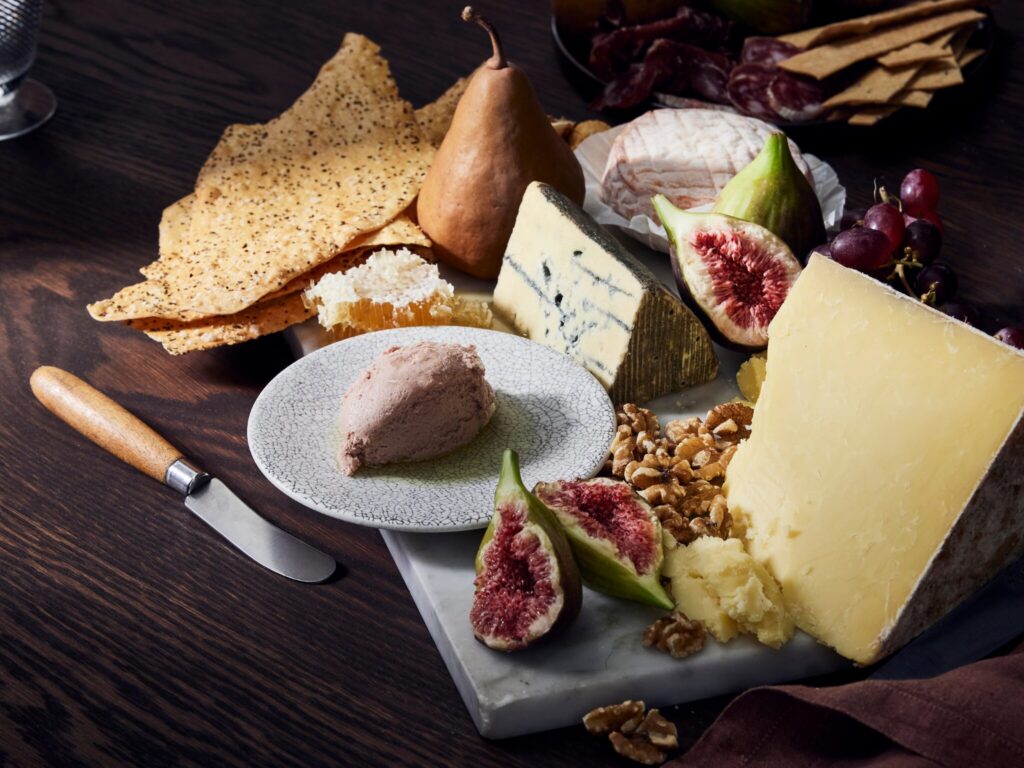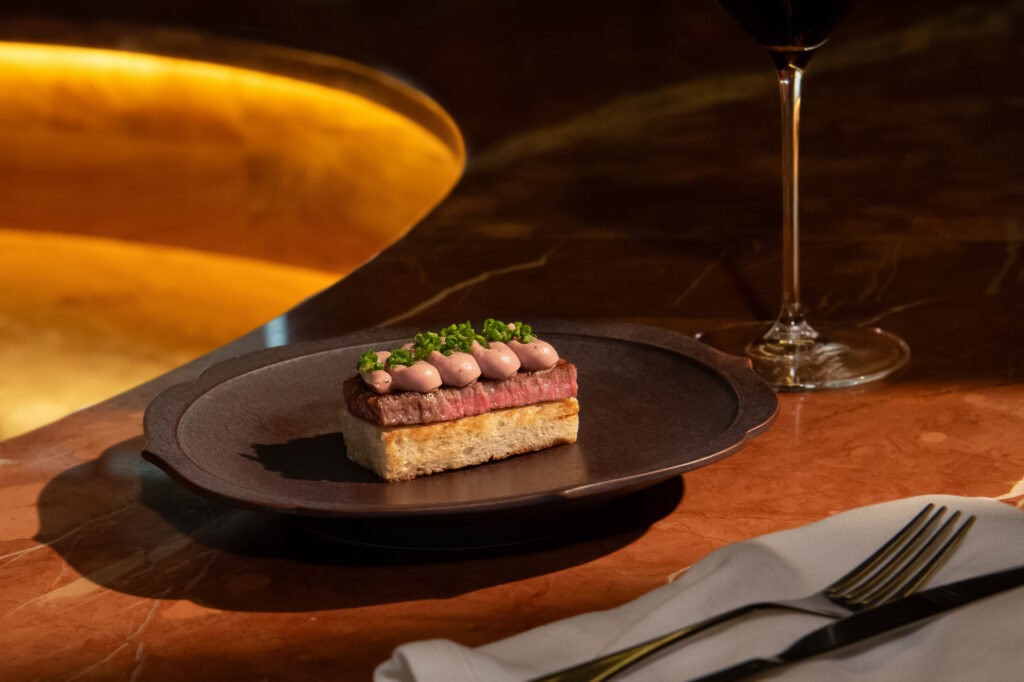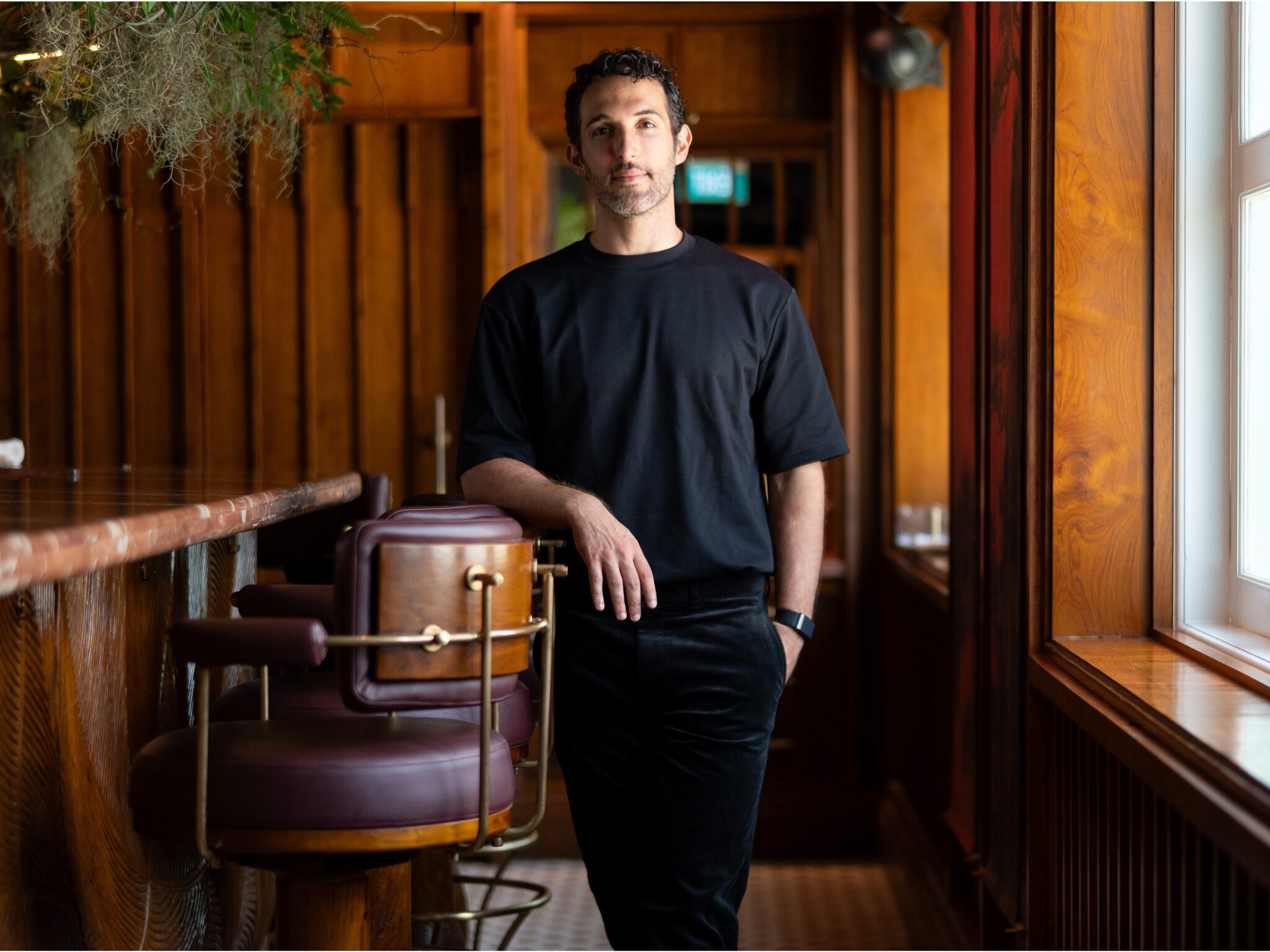Vow CEO George Peppou on Cultivated Quail Launch: ‘We Need to Change the Food, Not the Production Process’
8 Mins Read
As it rolls out its first cultivated meat product following regulatory approval in Singapore, Vow CEO George Peppou speaks to Green Queen about the Forged quail parfait, the need to do things differently, and consumers’ approach to novel food tech.
As the first Australian cultivated meat brand to earn regulatory clearance anywhere in the world, Vow’s momentous achievement has raised plenty of intrigue – and questions.
In case you missed it, the Syndey-based startup is today launching its cultivated Japanese quail in Singapore’s Mandala Club, after the country’s regulator gave it the go-ahead to sell the product. But unlike other rollouts of cultivated meat, where chefs are supplied with the meat itself (which they then incorporate into dishes), Vow is taking a novel approach. What restaurant kitchens get is a parfait containing its cultivated quail.
The product coincides with the unveiling of its premium consumer brand, Forged, and a new metaphorical bird called Quailia, which is supposed to represent an animal that only exists to be eaten, unlike its real-world counterpart. “Quailia is a metaphor for what we are doing: creating new experiences rather than replicating food animals make,” Vow co-founder and CEO George Peppou tells Green Queen.
It all feels a little different with this latest cultivated meat launch – and that’s because it’s meant to be. “We believe in creating entirely new food experiences,” says Peppou. “Quail is a great way to introduce consumers to this. It’s familiar enough to be interesting, but not something eaten regularly enough for consumers to have a strong view of what it is and isn’t.”
What’s in the Forged Parfait?

Peppou reveals that the parfait is the first of several products Vow is launching the Forged brand this year. But why start with this? “Parfait was the most gentle introduction to our deliberately different products,” he notes. “Parfait is similar to a very light pâté. Forged Parfait combines a flavour and texture combination you can’t find anywhere else. The result is a delightful contradiction: rich yet delicate with a unique weightless, melt-in-your-mouth quality.”
Companies like Eat Just, Aleph Farms (both of whom are cleared to sell their products) and Meatable are all using a hybrid approach in their initial products, but Vow’s quail itself comprises 100% quail cells. “We don’t hybridise with any other inputs,” confirms Peppou.
So what goes in the parfait? “Cultured Japanese quail, a bit of garlic, onion, brandy and butter – exactly what you’d find in a pâté, just much lighter and creamier.” The Quailia makes up 60% of the product, which additionally contains butter and port wine that’s clarified with egg whites and milk. Being a meat product grown from real animal cells, this was never going to be vegan, but the company is doubling down on its for-meat-lovers rhetoric.
“We are exclusively focused on making foods for meat-eaters, which is why featuring butter on the ingredient list is not an issue,” says Peppou. “Vegans and vegetarians eating the food we produce doesn’t have an impact.”
This chimes with what the Vow CEO – a meat-eater – told Green Queen founding editor Sonalie Figueiras on the Green Queen in Conversation: Cultivated Meat Pioneers in October. “When I think about how can I change the behaviour of people like me, like my family, it’s not going to be by making something which approximates the meat we eat today – that’s a very hard sell for people that already have integrated meat into their diets and have no intention of changing that.”
He added: “We have to make foods that are better than the meat that we can get today: tastier, more nutritious, offering functionality that animals can’t.”
To elevate and showcase the potential of such products, cultivated meat companies rely on world-class chefs to incorporate their innovations into dishes. Vow’s debut will come courtesy of a seven-course omakase menu at Mandala Club’s Japanese restaurant Mori, with a series of exclusive dinners running until the end of the month.
“The product delivered to chefs is a packaged finished parfait,” Peppou says. “The use cases are limited only by the creativity of the chefs, as diners will see at Mandala, and at other venues in the future.” (Vow has a host of other restaurant collaborations lined up for the next two months, but it remains tight-lipped when pressed for further details.)
APAC ‘more open-minded’ to novel foods

The Singapore Food Agency (SFA) was the first regulator to approve the sale of cultivated meat, granting that honour to Eat Just back in 2020. Since then, Eat Just and fellow Californian startup Upside Foods have obtained approval in the US, and Aleph Farms in its home country of Israel.
It cements Singapore’s status as a hotbed for food tech and regulatory progress, despite having one of the most stringent processes globally. Dutch cultivated pork producer Meatable and French cell-cultured chicken startup Vital Meat have also filed for clearance in the island nation, with the former expecting to go to market in mid-2024.
“It was a very thorough assessment, which was very important to us so that consumers know our products are safe beyond doubt,” says Peppou. “The team at SFA were rigorous across all parts of the application, paying special attention to media components and ensuring our risk assessment around residues was to the highest standards.”
Europe is still lagging behind when it comes to cultivated meat regulation, given it has the strictest novel foods standards in the world. Up until recently, the UK followed pre-Brexit EU rules too, but now, a shake-up is on the horizon. In the US, while several companies are awaiting FDA and USDA approval, there’s the more immediate issue of dealing with incoming political bans on cultivated meat.
Consumer surveys show mixed results about the acceptance of these proteins. In the US, one poll suggested that 45% are open to trying these foods. This drops to just over a third (34%) in the UK. Another survey shows 47% of Germans and 42% of Austrians are willing to eat them at least once.
In India, meanwhile, a 2019 study showed that 56% of citizens are “very or extremely likely” to buy cultivated meat regularly. And recent research polling Singaporean diners who had tried Eat Just’s cultivated chicken found that on a scale of 1 to 5, the acceptance of cultivated meat was high (4.19). In fact, buying and eating these products “significantly boosted” people’s acceptance, with diners expressing a strong willingness to try them again (a score of 4.41/5) and recommending them to loved ones (4.45/5).
“Asia-Pacific, in general, is much more open-minded to novel food from a consumer standpoint,” says Peppou. “At a regulatory level, it’s much less politicised than in the EU and US,” he adds. Vow is currently in the middle of a public consultation process for its application to the bilateral Food Standards Australia and New Zealand, with the next round due to open in the middle of the year. “We are working with several regulators across four continents in different stages of engagement all the way through to filing,” he says. This includes the US too.
Tackling bans and backlash

Lately, there has been increased attention on what is termed ‘food tech neophobia’. “Often, what we’ve got is a phobia of new stuff, a sort of almost a sort of comfort reaction of regard to cling to the old stuff,” environmental journalist George Monbiot said in an interview with Figueiras last year.
This fear has been exacerbated by the attack on cultivated meat in the US. The states of Alabama, Arizona, Wisconsin, Texas, Nebraska, Tennessee and Florida have all taken aim at the industry by proposing a series of bans – whether that’s to do with labelling or even production and sale – with the latter on the brink of passing a bill to effectively criminalise cultivated meat.
Meanwhile, a host of negative media coverage – from Bloomberg to the New York Times – hasn’t helped things. “It’s an inevitable backlash by the media to overly optimistic timelines by companies and failed promises, and by farmers to a movement that calls for an end to their livelihoods,” suggests Peppou. “Naturally, farmers are upset by founders and companies that make them out to be a problem to be solved, and politicians are capitalising on that anger, while the companies have failed to convince consumers to replace a tried and tested product with an expensive, lesser replica.”
He adds: “We have been very clear from the beginning: we think sustainable, open-range farming – the kind practised here in Australia – is a critical part of the future of our food systems, and that cultured meat only makes sense as a way to create new, delicious foods, not imitate the food we already know and love. We are proud to create an entirely new category of food designed specifically for meat-eaters to enjoy.”
Peppou disagrees with the notion that novel tech has put many people off. “When Impossible [Foods] launched in Australia, there was zero controversy and now it’s on our shelves.” The Californian plant-based meat giant was something he also mentioned in Green Queen’s podcast last year. He praised Impossible Foods’ marketing and messaging, but said he would do things differently around the consumer angle: “There’s not really any selfish driver to purchase Impossible.”
Expanding on this, he stated: “It’s a direct, drop-in replacement for beef mince. It’s so meaty that it sort of has been seen by meat eaters, and it’s like: ‘What is any individual meathead getting out of incorporating impossible into their diet?'” He continued: “There’s not really anything in it for me to make my lasagna out of Impossible. In fact, there are reasons not to: it’s more expensive and it’s a bit of a hard choice because I have had to make a conscious decision to do something differently than I would otherwise want to.”
Peppou echoes this thinking when asked about the challenges – whether they’re political, optics, financial or production-related – facing cultivated meat in what is going to be a very important year for the industry. “By changing the process of production, rather than the food itself, you are asking consumers to change their behaviour for the benefit of the planet alone. Despite what we’d like to believe, those externalities don’t matter as much as we think to a vast majority of consumers when it comes to purchasing,” he says.
“The only way for us to change our behaviour is to offer new foods that consumers choose selfishly. That’s why Vow is different, because we innovate instead of imitating, and therefore offer something that consumers will selfishly choose, because it is deliberately different.”
The proof, of course, will be in the pudd– sorry, parfait.



